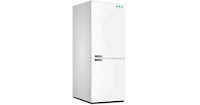High commode - high risk
The number of patients with piles is increasing as the normal process of defecation is disrupted using commode. Suffering from this problem for a long time increases the risk of cancer.
US President Jimmy Carter has resigned from the presidency for a week. Because he was suffering from hemorrhoids. His doctor then said he had contracted the disease due to commode use. Sitting in the commode for defecation cannot make the anus wide. Abdominal pressure is more than normal, the veins in the anus are tense and swollen. People who use commodes for a long time have an increased risk of diseases like constipation, piles, hemorrhoids. High commodes are becoming a high risk factor. The use of high commodes in particular has put city dwellers at serious health risk.
Quantum Heart Club Coordinator Dr. Moniruzzaman told Bangladesh Pratidin that people keep pace with contemporary issues to prove themselves modern. People have been squatting and defecating for thousands of years. Then the pan is being used to prevent germs. In 1851, a sanitary merchant exhibited a flush toilet at a trade fair in London. Although not popular then, the use of commodes gradually increased. Scientists now say that although it looks modern and convenient, it is unscientific. The muscles of the perineal region do not work properly when using high commode. This increases the risk of diseases like constipation, piles, hemorrhoids. Women in particular are having problems with normal delivery, having to have a caesarean. He further said that people are suffering from knee muscle problems while using high commode. Using a pan without using commode can get rid of many problems. In Quantum, we say Bangasana, sitting like this will reduce the back pain of women during pregnancy and increase the chances of normal delivery. Many people carry mobiles to spend a long time in the commode.
Statistics from the United States in 2015 show that 10 out of 9 Americans carry a phone to the toilet. This increases the time of use of high commode. The number of patients with piles is increasing as the normal process of defecation is disrupted using commode. Suffering from this problem for a long time increases the risk of cancer.
The habit of squatting on a low commode for natural work or defecation has been going on for a long time. At that time, the incidence of constipation, hemorrhoids and bowel cancer was not so high.
However, a recent study has shown that modern sitting methods, especially in high commodes, are creating various health problems. The study was published in the Israeli journal Health in the Journal of Medical Science. Researchers say that various intestinal problems (hemorrhoids, intestinal inflammation, colon cancer, pelvic cancer, bowel problems, etc.) are more common in the city. Not so in rural areas. Experts attribute this to the modern way of sitting or the way to sit on a high commode to do natural work.
According to statistics from the American College of Gastroenterology, half of Americans begin to suffer from hemorrhoids before the age of 50. Because of the use of commodes. In the 19th century, some traders in Europe and America introduced a type of sanitation called high commode. People have been squatting for thousands of years and changing the way they defecate. Commodities came to our country in the 80's. It is like a symbol of rising.
The most reliable book on gastroenterology, Bocas Gastroentology, states that the two thighs will stick to the abdomen during defecation. Sitting in the pan is 126 degrees from the angle between the anus and rectum. Sitting in the commode reduces this distance to 100 degrees. When it sits in the pan, other toxins and other wastes come out properly, which does not go into the commode. Proper sitting habits i.e. pan should be used in defecation. It is better to squat to empty the bladder. Especially women's urine is excreted properly when sitting like this. Sitting on a high commode does not completely empty the bladder. Urine remains and bacteria are formed, which causes urinary tract infections.








